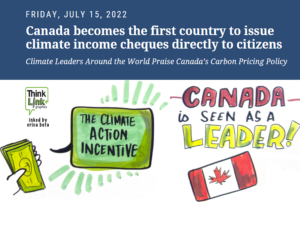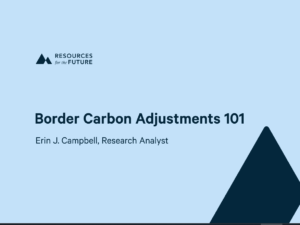Canada and 39 other countries, along with 25 cities and provinces, have already adopted a carbon pricing policy. As for the U.S., the work on carbon pricing also continues. An increasing number of Republicans and Democrats in the U.S. Congress are joining the Climate Solutions Caucus (CSC), which explores policy options to address climate change. As of November 2017, the number of members in the CSC was 62 (31 Republicans and 31 Democrats), a number that has more than tripled since January 2017. The CSC will likely be key in bringing bipartisan support to a federal carbon pricing policy, such as the Carbon Dividends Plan proposed by Republican elder statesmen in February 2017. Carbon pricing, however, faces serious challenges. Carbon pricing will have uneven effects across sectors, and lobbying efforts by relatively exposed sectors could threaten its political viability. In addition, if carbon pricing is not comparable among countries, it can lead to leakage: the movement of domestic economic activity—along with associated emissions—to jurisdictions with weaker carbon pricing. The net result of leakage is local economic costs without any associated global environmental benefits. To address these challenges, targeted support measures, such as an output-based allocations system for large industrial emitters in Alberta, are being adopted. However, these measures may be unnecessary if a level playing field is generated across borders. One way to generate a level playing field is through border carbon adjustments (BCAs), which have been proposed in the Carbon Dividends Plan in the U.S. French President Emmanuel Macron has also twice called out in international assemblies for Europe to implement BCAs. BCAs apply import fees on products from countries without comparable carbon pricing systems, and rebates to industries exporting to those countries. In addition to preventing leakage, BCAs also pressure other countries to adopt comparable carbon pricing. This brings us closer to an effective worldwide carbon price, our most important policy instrument for reducing greenhouse gas (GHG) emissions at lower cost. BCAs or other targeted support measures can strengthen carbon pricing policies and are likely necessary in the short term. However, these measures distort the price signal that an evenly applied carbon price would otherwise provide, resulting in higher cost GHG reductions to the economy. Collaborations or “clubs” between close trading partners on carbon pricing can result in more robust, effective, and lower cost GHG reductions. For example, Canada and the U.S. can implement comparable carbon pricing systems to possibly address most leakage concerns, eliminate the need for market-distorting output-based allocations systems, and avoid paying BCAs to each other. Canada, U.S., and the world are moving forward on carbon pricing to regulate GHG emissions and slow climate change, one of the world’s costliest health, safety, and environmental issues. To limit GHG regulation costs while maintaining high levels of protection, Canada and the U.S. need to harmonize carbon pricing and BCAs as much as possible. Why Canada-U.S. Cooperation is key to Carbon Pricing Success
By Marlo Firme
Why Canada-U.S. Cooperation is key to Carbon Pricing Success
Home » CCL Canada News » Why Canada-U.S. Cooperation is key to Carbon Pricing Success












